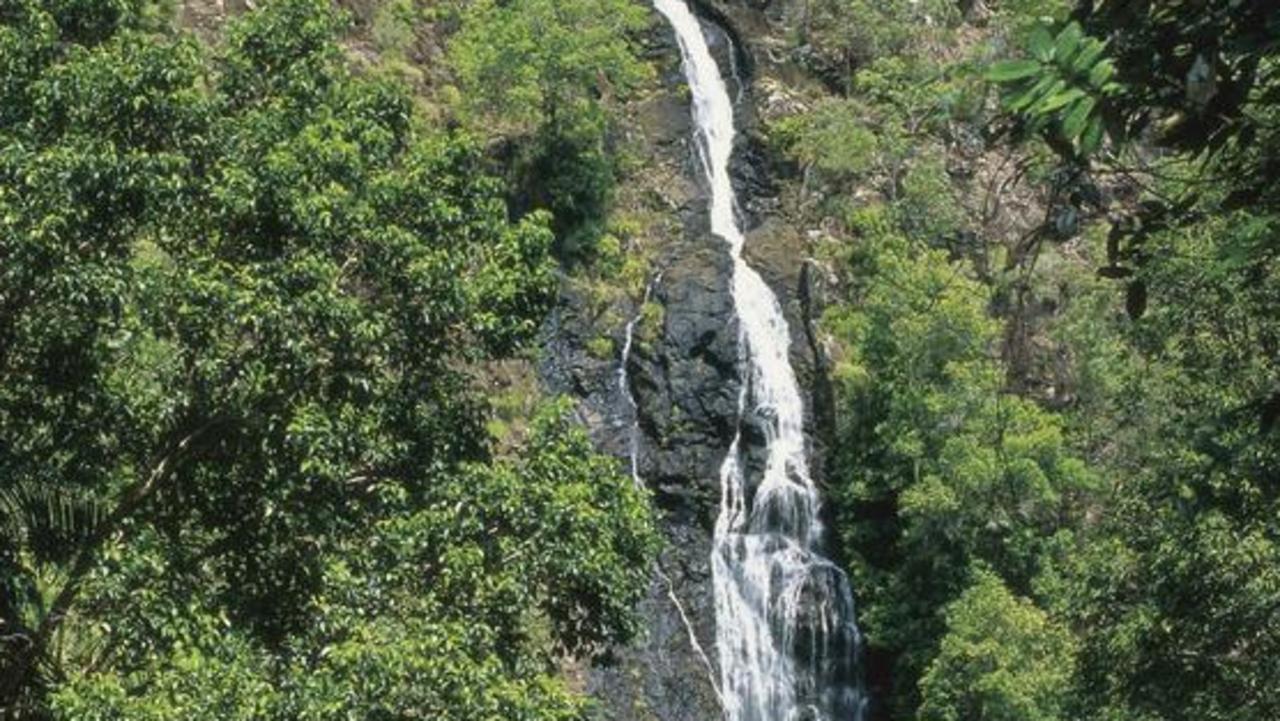PM’s plan to get Australia back on track as global COVID-19 cases near five million
A leaked report has revealed the key industries Scott Morrison has been advised to target “immediately” to unlock billions of dollars.

WHO records worst day ever with nearly 5m COVID-19 cases
Spain makes masks compulsory for all citizens
Countries reopen but struggle with ‘new ‘normal’
For some nations, the worst is yet to come as cases spike
A leaked draft of the National COVID-19 Commission manufacturing report has detailed the key industries Prime Minister Scott Morrison has been advised to target “immediately” to unlock billions of dollars to save Australia from economic ruin.
The interim taskforce report – obtained by Sky News Political Editor Andrew Clennell - reveals the gas and manufacturing industries will be the Coalition’s major focus.
“We need to be decisive and begin immediately to create an Australian gas market that delivers globally competitive results,” the report said.
The report also calls for the creation of a “competitive domestic gas market”, including removing barriers to supply, building the bridge of supply in the near term, lowering the cost of pipelines, completing then network of pipelines to markets.
Focusing on the energy industry is predicted to create up to 170,000 well paid direct jobs and up to 800,000 indirect jobs which the report predicts could generate between $10-20 billion in direct GDP.
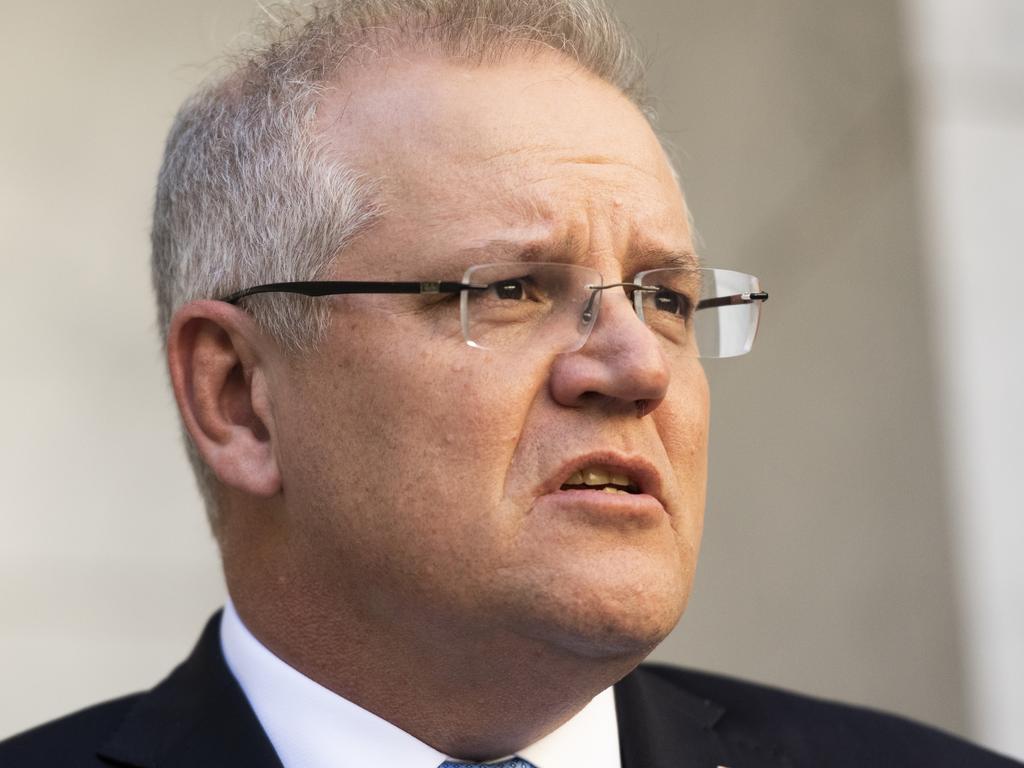
It would also help “support the reskilling of many of those affected by current pandemic” and diversify the economy.
By 2030, up to 412,000 new jobs could be created by boosting gas alone.
The report also mentions the need for a new Manufacturing Board to be set up under the Industry Minister to develop a 10-year policy plan on manufacturing for annual review.
Industry Minister Karen Andrews’s office told Sky News the new taskforce could “stimulate the sector” and grow domestic manufacturing.
“The National Covid Coordination Commission established a manufacturing taskforce to develop ideas that could stimulate the sector,” she said.
“Any suggestions made by this Taskforce are to the NCCC for consideration and not from the government. Any final suggestions from the Taskforce may feed into the work being done across a range of portfolios, led by the Industry Minister, to grow Australian manufacturing.”
WORST DAY ON RECORD AS CASES GROW TO 5 MILLION
The World Health Organisation has expressed concern about the rising number of new coronavirus cases in poor countries, even as many rich countries have begun emerging from lockdown.
The global health body said on Wednesday that 106,000 new cases of infections of the coronavirus had been recorded in the past 24 hours, the most in a single day since the outbreak began.
“We still have a long way to go in this pandemic,” WHO director-general Tedros Adhanom Ghebreyesus told a news conference.
“We are very concerned about rising cases in low and middle income countries.”
Mike Ryan, head of WHO’s emergencies programme, said: “We will soon reach the tragic milestone of 5 million cases”.
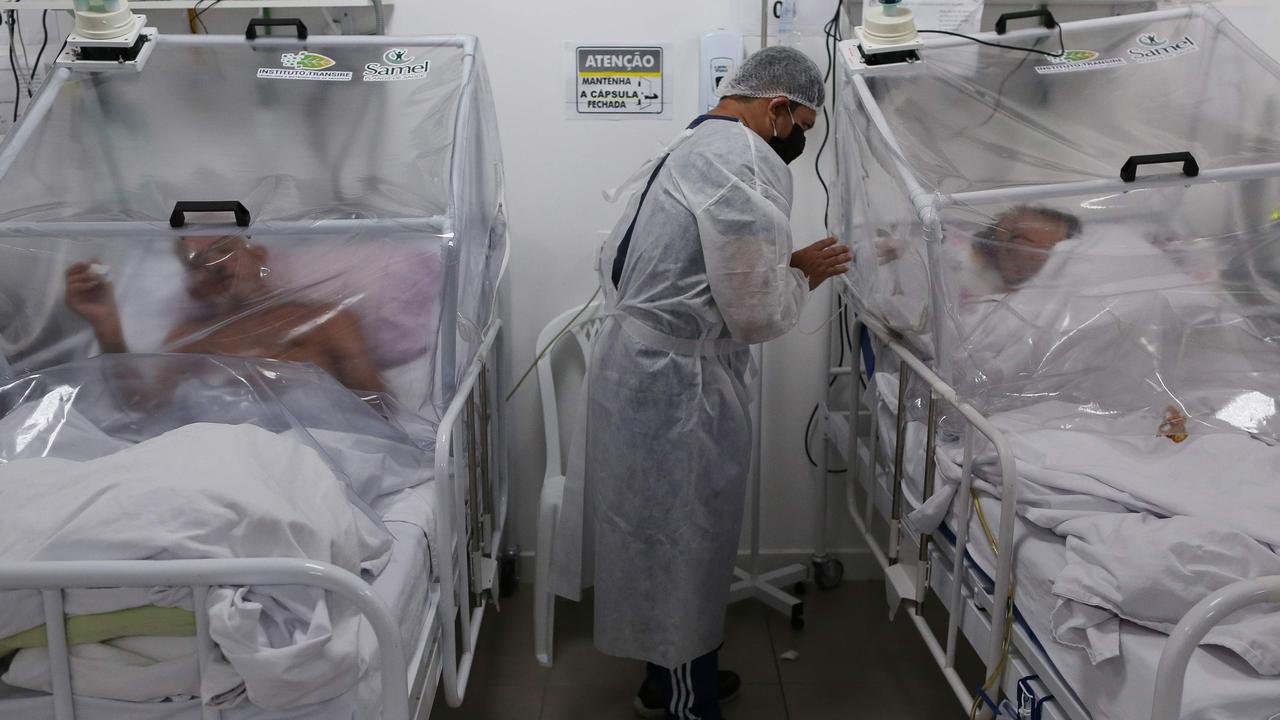
Many countries around the world are loosening their coronavirus restrictions but people are discovering that what a return to normal looks like varies widely. In Spain, it’s a new government order to wear masks outside even as some businesses reopen.
In Italy, where good food is an essential part of life, once-packed restaurants and cafes are facing a huge financial hit as they reopen with strict social distancing rules after a 10-week shutdown. Experts warn that as many as one- third of the country’s restaurants and bars could go out of business, up to 300,000 jobs in the sector could vanish and losses could reach 30 billion euros ($A49 billion) this year.
The head of the Dutch hospitality industry welcomed a decision to allow bars and restaurants to reopen on June 1 but warned about the impact of mandatory social distancing rules.
“The restrictions are unfortunately unworkable” for many businesses, said Rober Willemsen of Royal Hospitality Netherlands, adding that more government support is needed to ensure the survival of many bars and restaurants.
Education, in many places, is facing radical changes.
Cambridge became the first university in Britain to cancel all face-to-face lectures for the upcoming school year, saying they will be held virtually and streamed online until the summer of 2021.
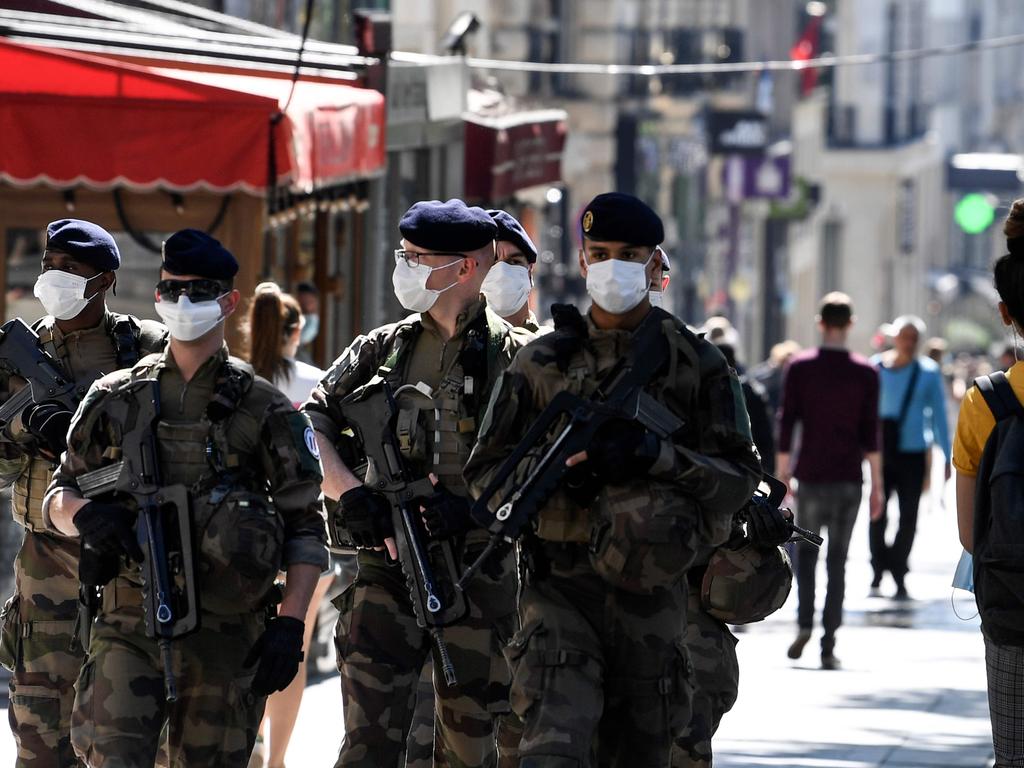
In South Korea, hundreds of thousands of high school seniors had their temperatures checked and used hand sanitisers as they returned on Wednesday, many for the first time since late last year. Students and teachers were required to wear masks and some schools installed plastic partitions around desks.
France is limiting spaces in its primary schools, giving priority to the children of essential workers and those in need. Some younger students even go on alternating days while high schools remain closed.
While infection rates have been falling in Asia and much of Europe, the pandemic is still spiking in Latin America.
Brazil this week became the world’s third worst-hit country with more than 250,000 confirmed cases despite limited testing.
In Lima, the capital of Peru, coronavirus patients are filling up the city’s intensive care beds.
More than 4.9 million people worldwide have been confirmed infected by the virus, and more than 320,000 deaths have been recorded, according to a tally by Johns Hopkins University.
Russia and Brazil are now behind only the United States in the number of reported infections, and cases are also spiking in India, South Africa and Mexico.
‘TIME FOR A REALITY CHECK’: WARNING ON EASING LOCKDOWNS
Western Australia Health Minister Roger Cook has called for a reality check on any further loosening of coronavirus restrictions, saying it will take about two weeks to see the effects of the latest changes.
“I think it’s time for a reality check. We’ve had phase two openings now for just three days,” Mr Cook said.
“We are dealing with a killer disease and we must do these things gradually.”
Mr Cook reiterated WA needed to see consistently low infection numbers in other states before the McGowan Government would allow interstate travel to resume.
“We really need to undertake an all or nothing approach to this,” he said.
WA Premier Mark McGowan likened NSW Premier Gladys Berejiklian to a bully for calling on states to scrap travel restrictions.
“It’s odd. NSW is saying don’t catch public transport in Sydney yet they’re saying why can’t NSW people fly to WA? The message is totally inconsistent,” Mr McGowan said.
“We’re not going to give in to that sort of bullying by the NSW premier or anyone else.”
SPAIN’S LOCKDOWN EASES
Spain has made it compulsory for all citizens, including children over six, to wear masks in public spaces as one of Europe’s strictest lockdowns gradually unwinds.
The Health Ministry order said the masks – whose efficiency in curbing the coronavirus is hotly debated globally – would be needed from Thursday for indoor public spaces and outdoors when impossible to keep a two-metre distance.
Spain has suffered 27,778 deaths and had 232,037 cases of the COVID-19 disease, according to latest data, while the tourism-dependent economy is forecast to contract up to 12.4 per cent in 2020 due its virtual paralysis since mid-March.
But the pace of new fatalities has slowed to under 100 a day, and Prime Minister Pedro Sanchez’s left-wing coalition is aiming to lift most of the lockdown by the end of June unless there is a second wave.
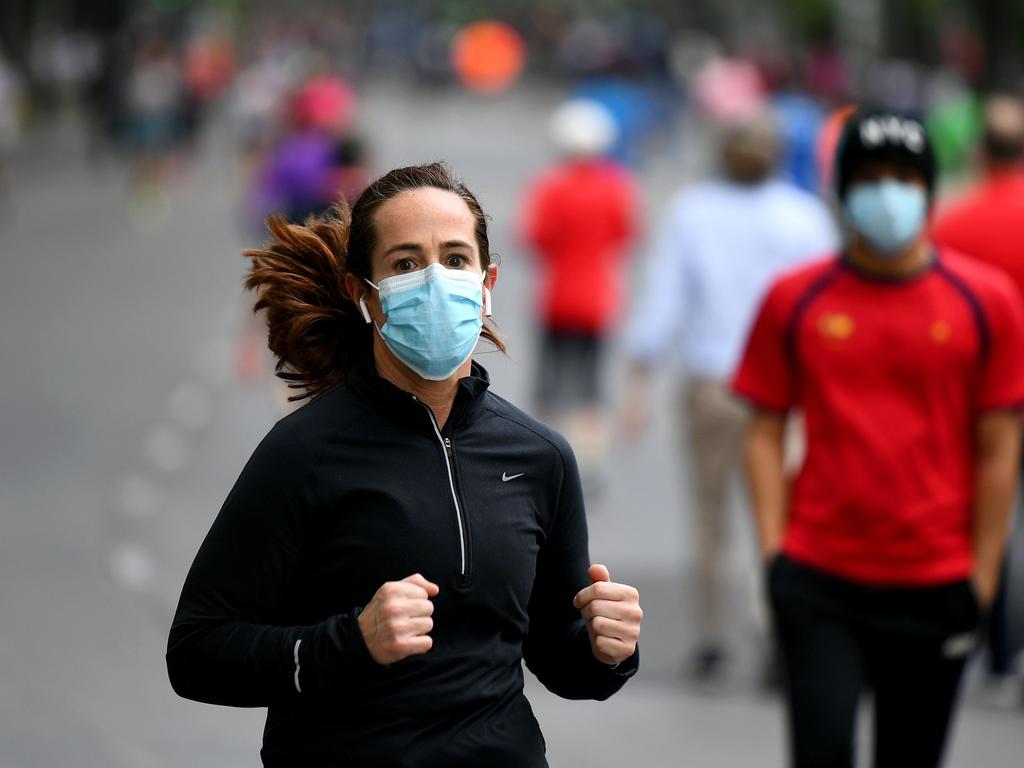
To keep control of the gradual phase-out of restrictions, which vary from region to region, the government is requesting a two-week extension of the state of emergency.
The lower house of the Spanish parliament, where Mr Sanchez needs some opposition support for a majority, was due to vote on that on Wednesday.
Some are getting weary of the restrictions: demonstrators of up to a few hundred have been gathering daily at 9pm to bang pots and pans and call for the government’s resignation. Mainly in wealthy, conservative neighbourhoods, the protesters have often ignored social-distancing rules.
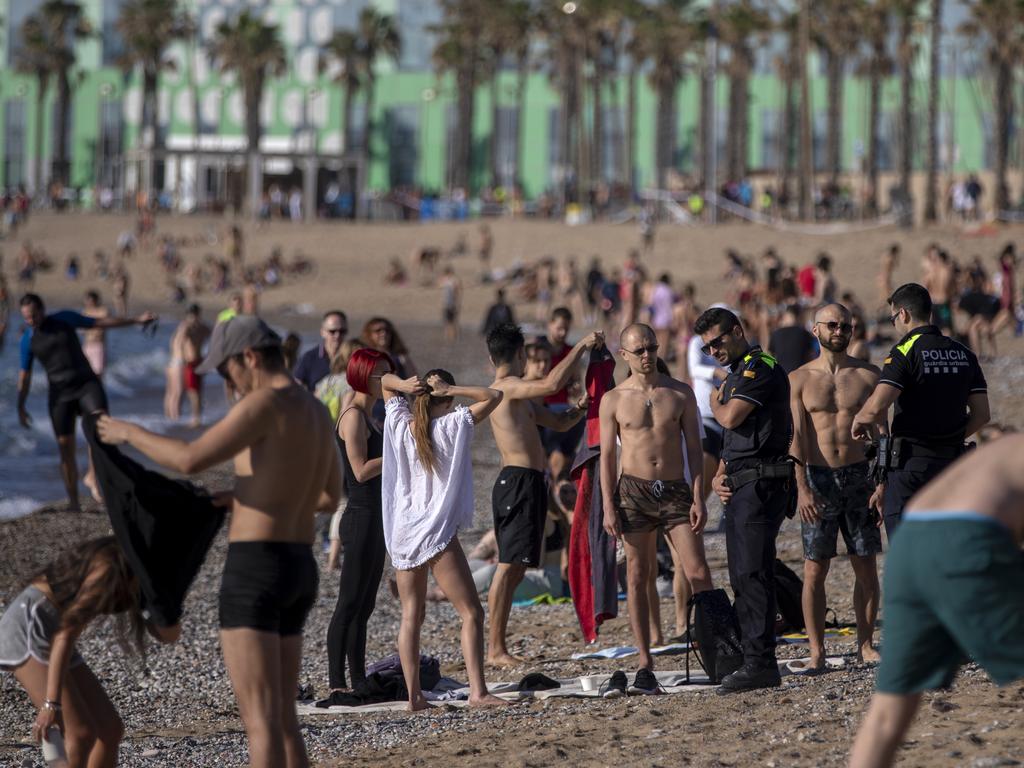
Madrid has eased restrictions to allow children outdoors, and shops and beaches to reopen. But it is keeping a quarantine for overseas travellers for another two weeks.
“We have not got this far by inertia, but by the work of the health workers. The citizens, united, have bent the curve. No one has the right to waste what we have achieved together,” Mr Sanchez told congress, as his minority government tackled the increasingly hard task of getting support from other parties to extend the state of emergency.
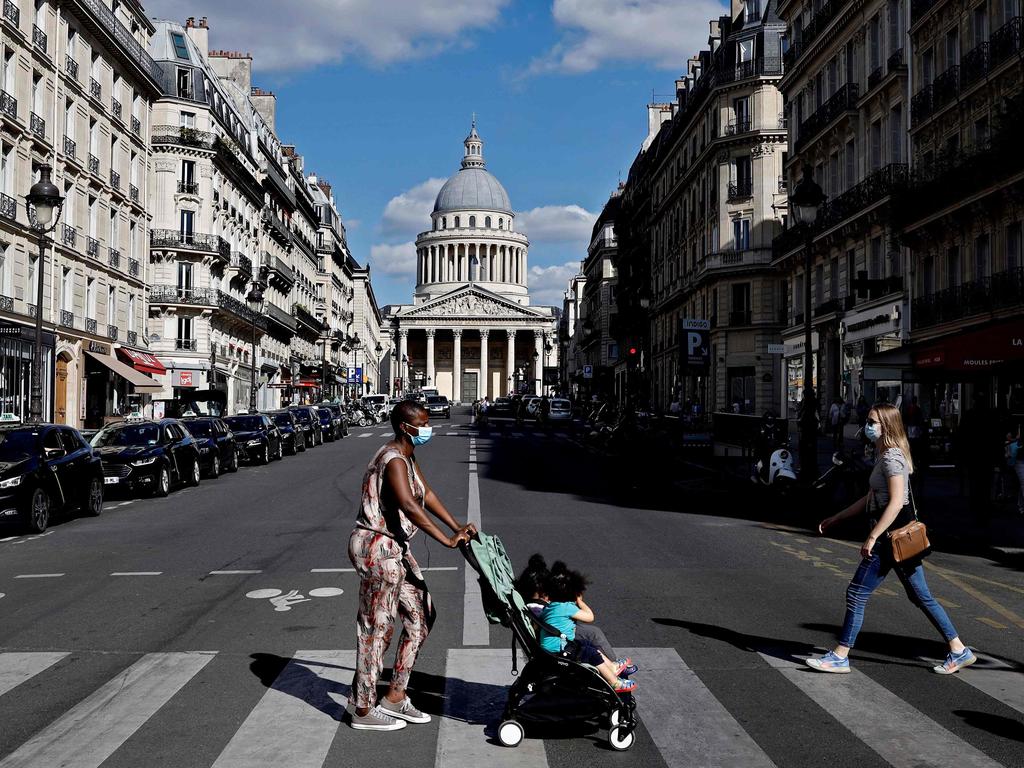
FRENCH VIRUS DEATHS ON RISE AGAIN
French health authorities have reported 110 new coronavirus deaths, an increase of 0.4 per cent, bringing the total to 28,132 – still the fourth-highest in the world behind the US, Britain and Italy.
The new figures on Wednesday local time followed a decline in the death toll on Tuesday due to adjustments reported by regional health centres in nursing homes.
The number of confirmed cases increased by 418 to 143,845, an increase of 0.3 per cent, in line with the average rise per day seen since the end of a lockdown on May 11.
On Tuesday, the number of cases rose by 524.
NATIONS REOPEN BUT STRUGGLE WITH ‘NEW NORMAL’
As nations around the world loosen coronavirus restrictions, people are discovering that “the new normal” is anything but.
Yet some realities have emerged: schools, offices, public transport, bars and restaurants are now on the front lines of post-lockdown life. How each of those key sectors manages social distancing and tamps down on expected new outbreaks will determine the shape of daily life for millions as researchers race to develop a vaccine that is still likely months, if not years, away from being available to all.
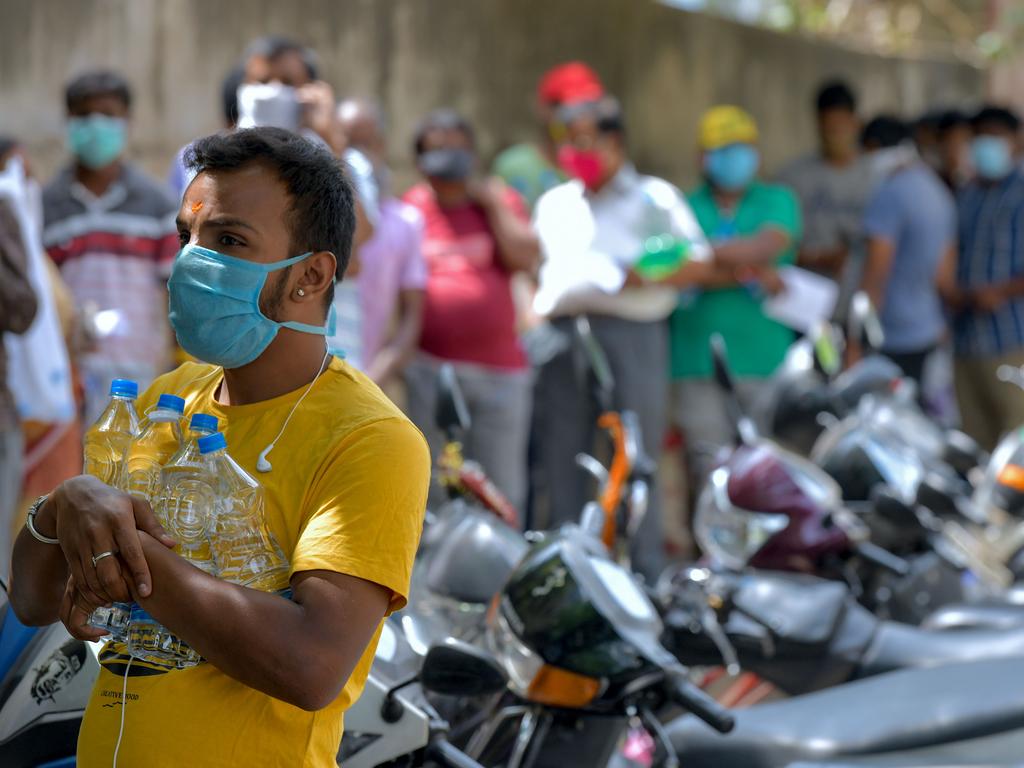
What a return to normal looks like varies widely. For hungry migrant workers in India, it was finally being able to catch trains back to their home villages to farm while city jobs dried up. For hundreds of cruise ship workers stranded at sea for months, it was finally reaching shore Wednesday in Croatia.
In Italy, where good food is an essential part of life itself, once-packed restaurants and cafes are facing a huge financial hit as they reopen with strict social distancing rules. The losses are forecast to pile up to 30 billion euros ($A60 billion) this year.
“We have to turn upside down all the activity that we did before,” lamented chef Raffaele di Cristo, who now must wear a mask and latex gloves as he prepares food at the popular Corsi Trattoria in Rome. “Everything is changed. Slowly, slowly, we will try to understand and to adapt to this coronavirus.”
Corsi reopened for business Monday with half its tables removed to ensure the mandated 1-meter spacing between tables.
Hand sanitising gel was placed at the entrance and a new ordering system was installed so customers can read the menu on their phones.
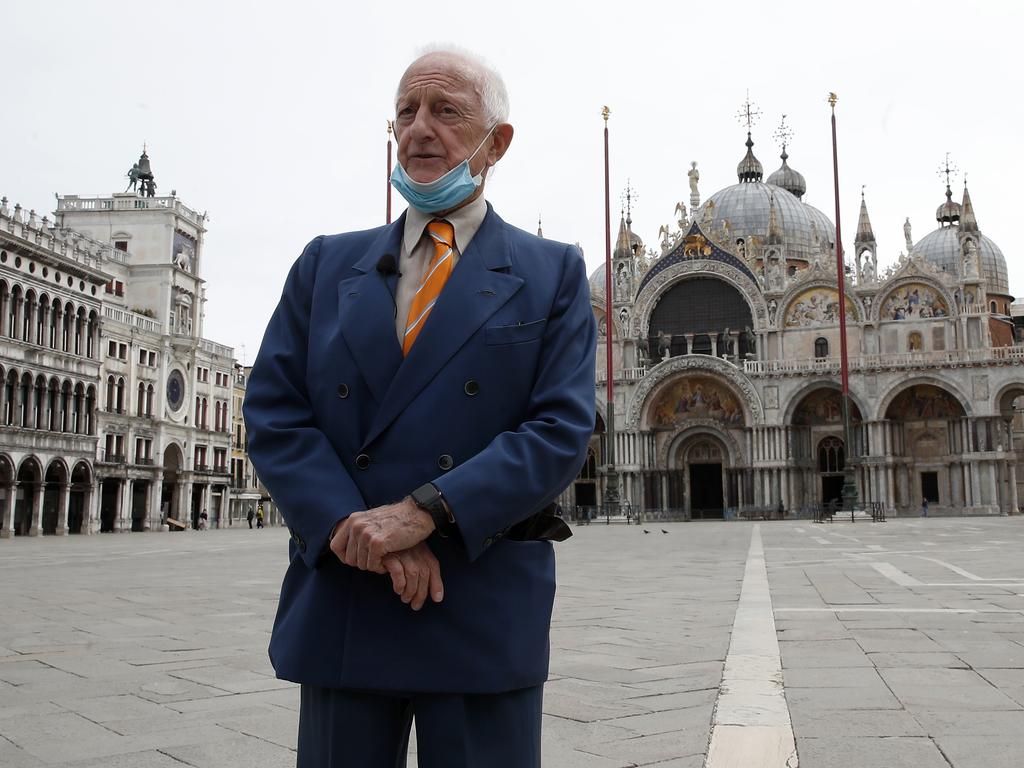
Some shops in Italy have complained about a shortage of gloves keeping away customers. Veneto Gov. Luca Zaia said on Wednesday he would change the rules on wearing gloves in clothing stores and shoe shops and substitute sanitising gel instead.
Slovakia reopened theatres, cinemas and shopping malls on Wednesday, all with new restrictions on visitor numbers, even though it has had only 28 deaths from COVID-19.
The head of the Dutch hospitality industry welcomed a decision to allow bars and restaurants to reopen on June 1, but warned about the impact of mandatory social distancing rules.
“The restrictions are unfortunately unworkable” for many businesses, said Rober Willemsen of Royal Hospitality Netherlands, adding that more government support is needed to ensure the survival of many bars and restaurants. Education is also facing a radical rethink.
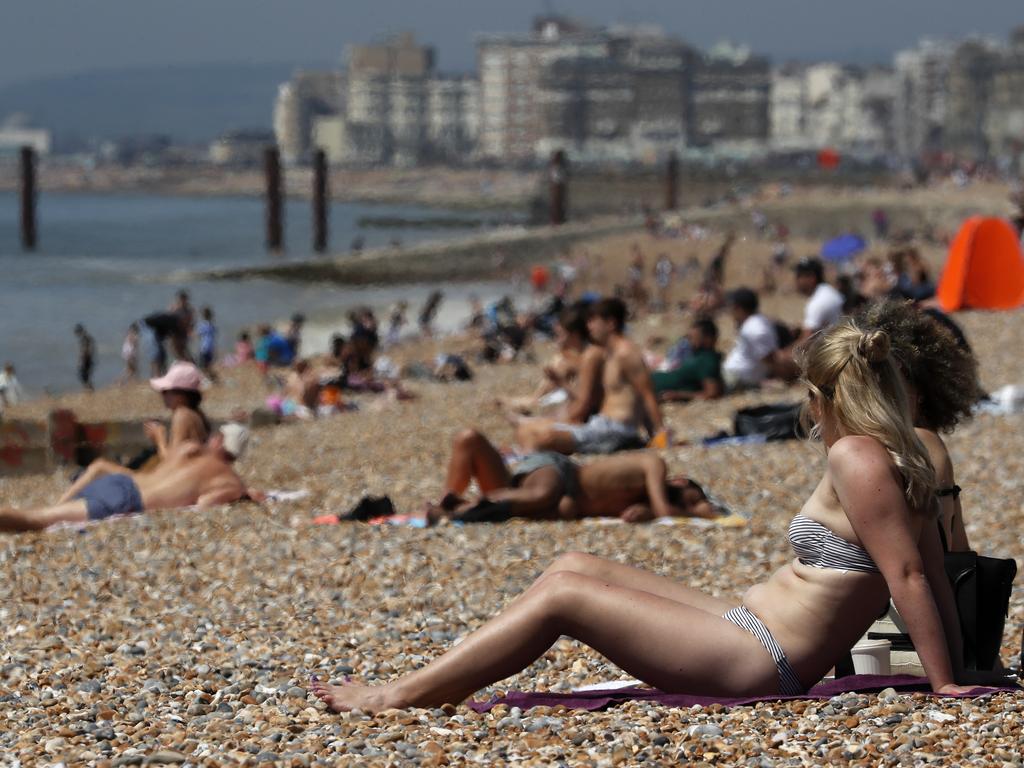
Cambridge became the first university in Britain to cancel all face-to-face lectures for the upcoming school year, saying they will be held virtually and streamed online until summer 2021.
Other institutions have taken different tacks: the California State University system has announced that most classes will be online for the fall.
The University of Notre Dame in Indiana will bring students back to campus but redesigned its calendar to start the semester early in August and end before the Thanksgiving holiday, along with ordering masks, testing and contact tracing.
In South Korea, hundreds of thousands of high school seniors had their temperatures checked and used hand sanitisers as they returned Wednesday, many for the first time since late last year after their new term was repeatedly pushed back. Students and teachers were required wear masks and some schools installed plastic partitions around desks.
France is limiting spaces in its primary schools, giving priority to the children of essential workers and those in need. Some younger students even go on alternating days, while high schools remain closed.
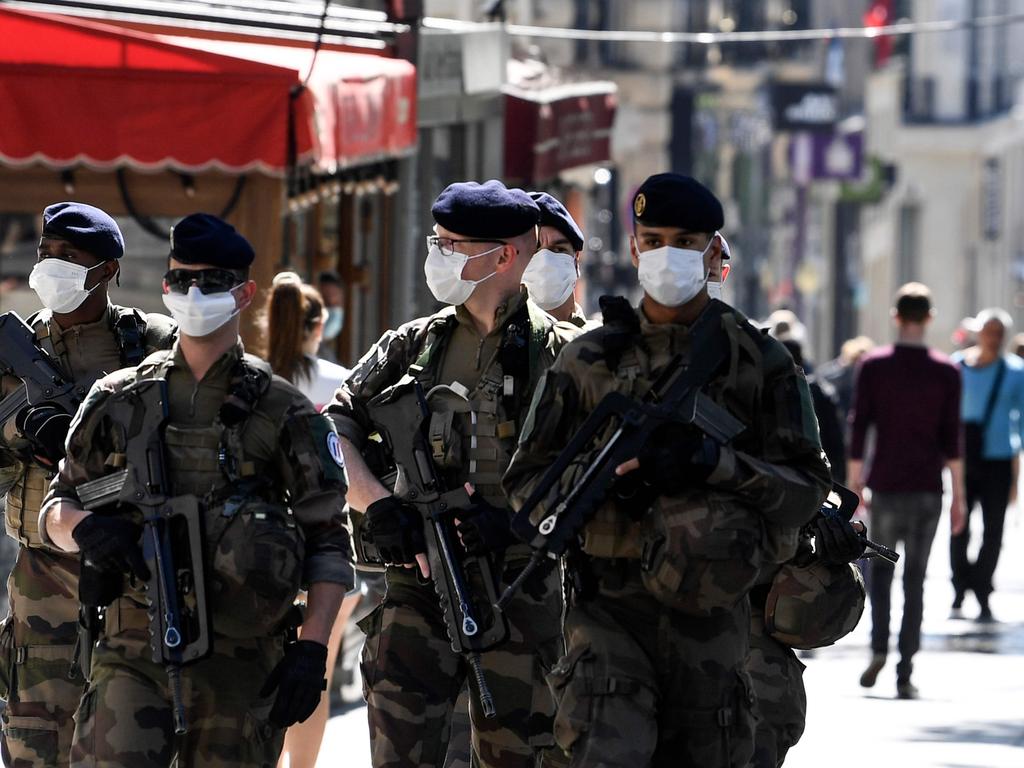
In the new normal, people’s gratitude at being able to shop or eat out again is mingling with worries about job security.
Business was slow Wednesday at a Paris farmer’s market with a mixed mood among the masked, gloved vendors. A man selling peonies and petunias said he was glad to get out and see shoppers again, while a woman selling asparagus and tomatoes behind a makeshift plastic screen grumbled that her customers were buying less than usual.
Fears about job security are not unwarranted.
Airline engine maker Rolls-Royce announced plans Wednesday to cut 9,000 workers as it grapples with the collapse in air travel due to the pandemic.
In general, those jobs come with good pay and benefits, and losing them is a sharp blow to local communities. Some businesses are adapting quickly to new realities. In Kenya, safari operators have resorted to sharing live broadcasts on social media in hopes that attention to endangered and other species doesn’t fade.
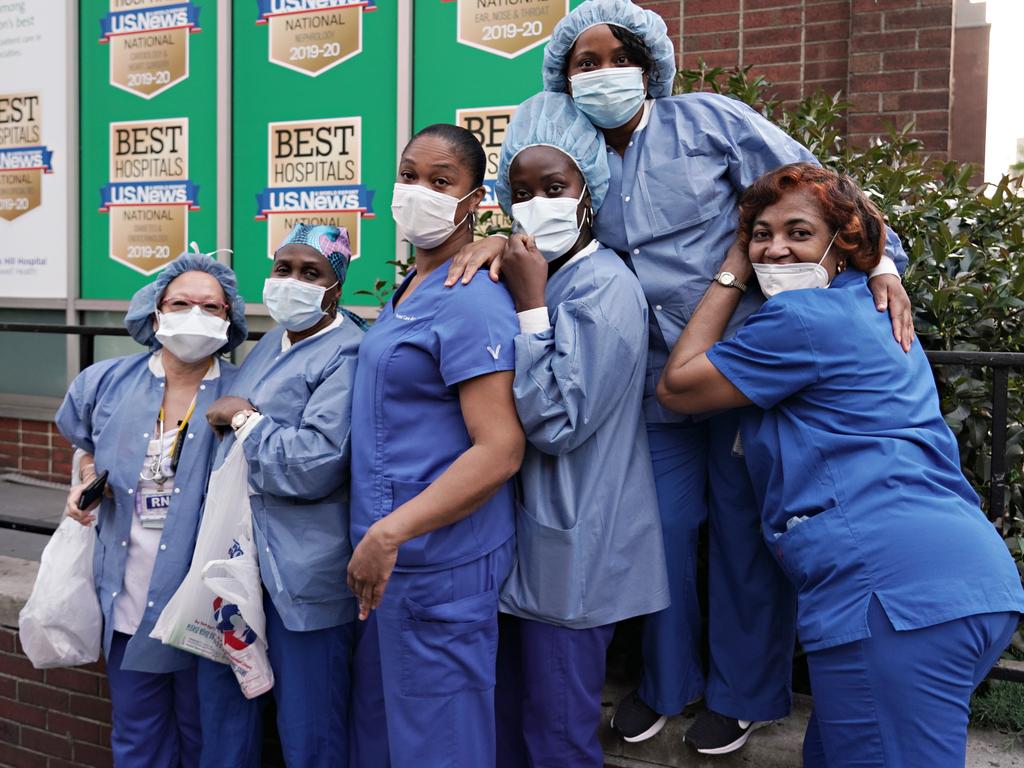
Many governments, including those in scores of U.S. states, are in fierce disagreement over what the new normal should even be.
More than 4.9 million people worldwide have been confirmed infected by the virus, and over 323,000 deaths have been recorded, according to a tally by Johns Hopkins University that experts believe is too low for reasons that differ country by country. The United States has seen nearly 92,000 deaths and Europe has had nearly 165,000.
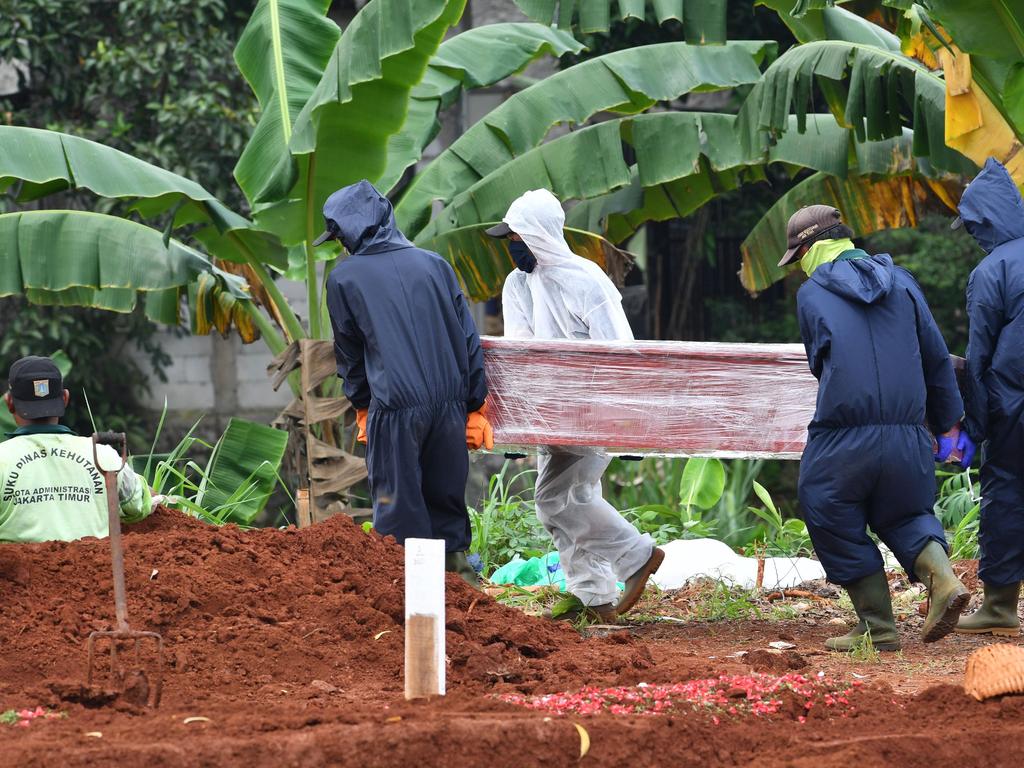
CORONAVIRUS STILL SPIKING IN SOME COUNTRIES
While infection rates have been falling in much of Europe, the pandemic is still spiking in Latin America.
Brazil this week became the world’s third worst-hit country with more than 250,000 confirmed cases despite limited testing.
In Lima, the capital of Peru, coronavirus patients are filling up the city’s intensive care beds.
“We’re in bad shape,” said Pilar Mazzetti, head of the Peruvian government’s COVID-19 task force. “This is war.”
U.N. Secretary-General Antonio Guterres warned on Wednesday that the pandemic could push millions into extreme poverty in Africa, where the virus has reached every country.
Guterres said Africa needs more than $200 billion ($A303bn) and “an across-the- board debt standstill” for struggling nations.
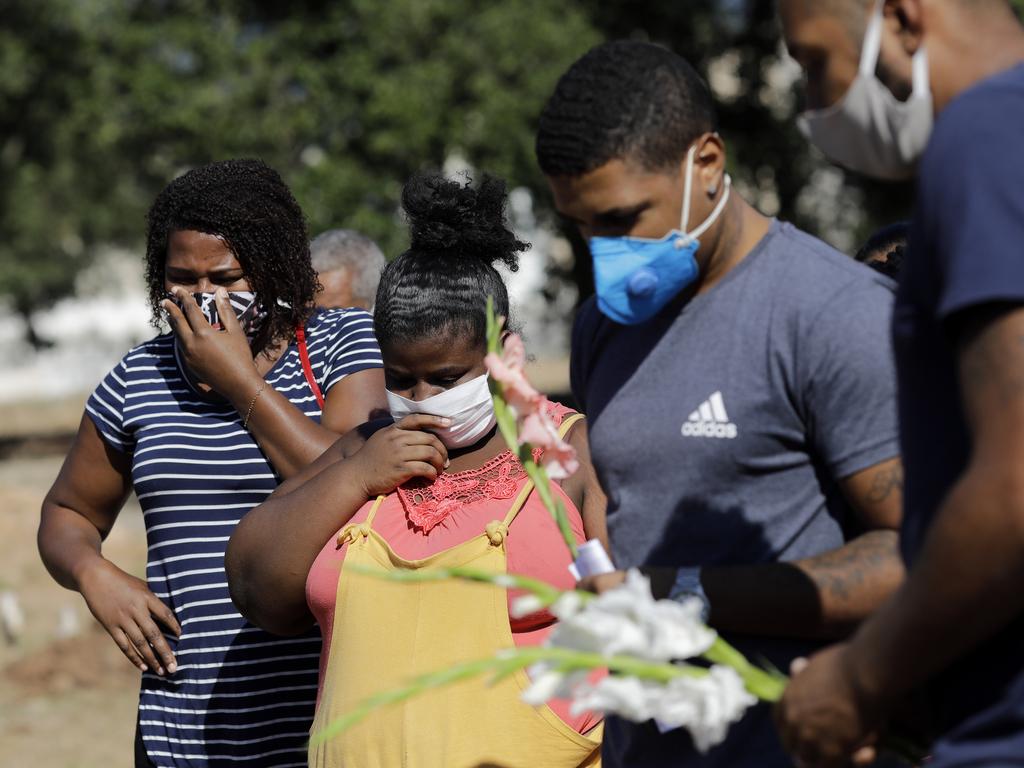
“(This must be) followed by targeted debt relief and a comprehensive approach to structural issues in the international debt architecture to prevent defaults,” he added.
Russia and Brazil are now behind only the United States in the number of reported infections, and cases are also spiking in India, South Africa and Mexico.
Russia announced Wednesday that its coronavirus caseload has surpassed 300,000, with the death toll almost reaching 3000.
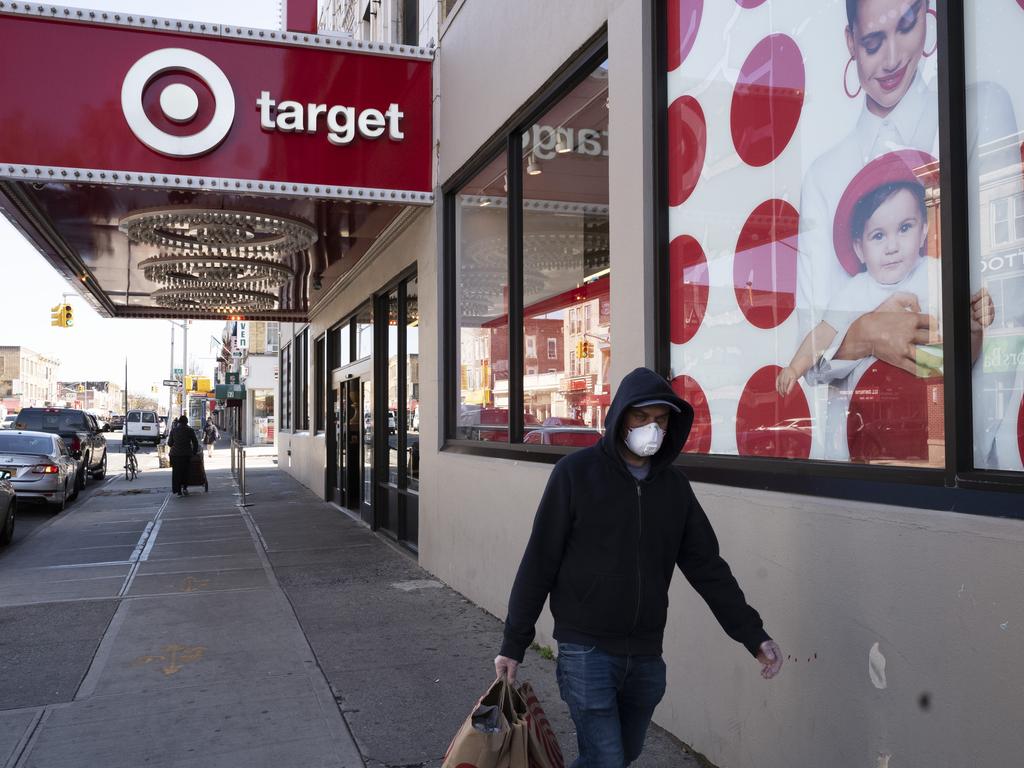
Indonesia has recorded its highest single-day rise in COVID-19 cases as the government is preparing for a “new normal” by July.
A health ministry official says infections rose by 693 cases, raising the total to more than 19,000.
Some Indonesians believe there’s little commitment from the government and citizens to fight the virus.
The country has carried out about 154,000 tests among the population of about 270 million.
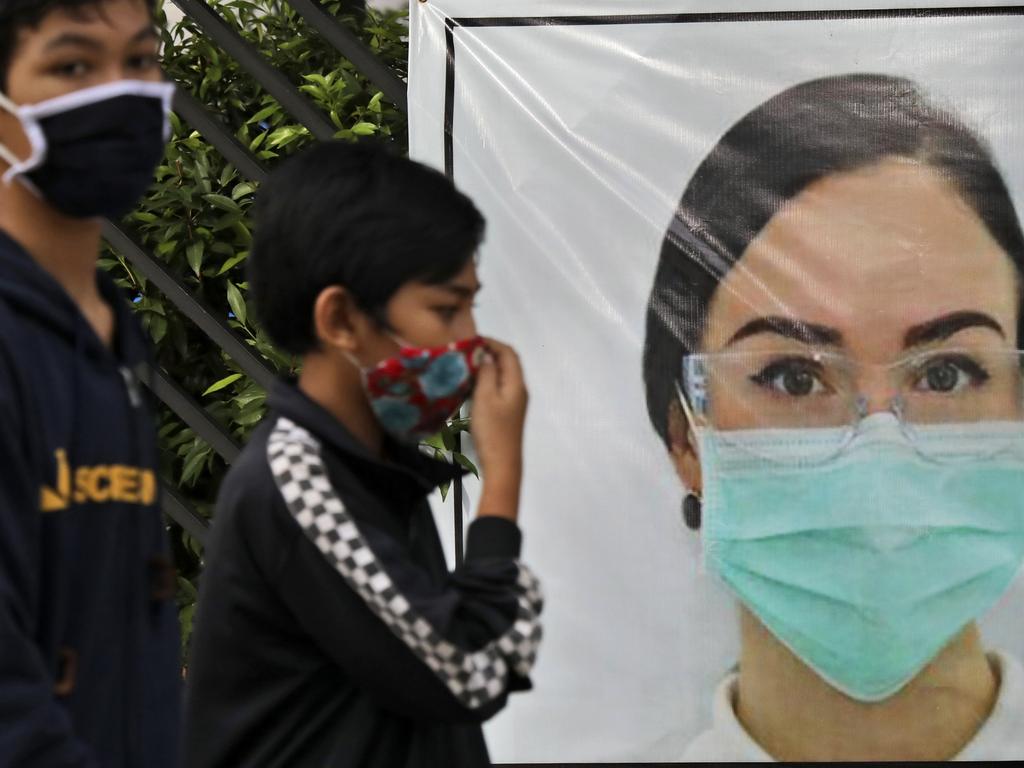
All 50 of the United States are poised to reopen but Florida and Georgia are under scrutiny for their reporting on COVID-19 cases.
A Florida official working on tracking coronavirus case numbers says she was removed from the project for wanting to track numbers accurately and she has questioned the state’s commitment to transparency.
In the Southern state of Georgia, a misleading chart was posted on the state Department of Public Health’s web page, leading some to suspect that data tracking is not accurate there either.
The two states are among the first to announce the reopening of businesses and public spaces amid the pandemic.
All 50 states have at least partially reopened, although on Tuesday local time those measures had corresponded directly with an increase in daily cases of the virus.
And even though the CDC released a 60-page document of recommended reopening guidelines, the White House last week shelved the guidance over concerns it was too specific.
Originally published as PM’s plan to get Australia back on track as global COVID-19 cases near five million


